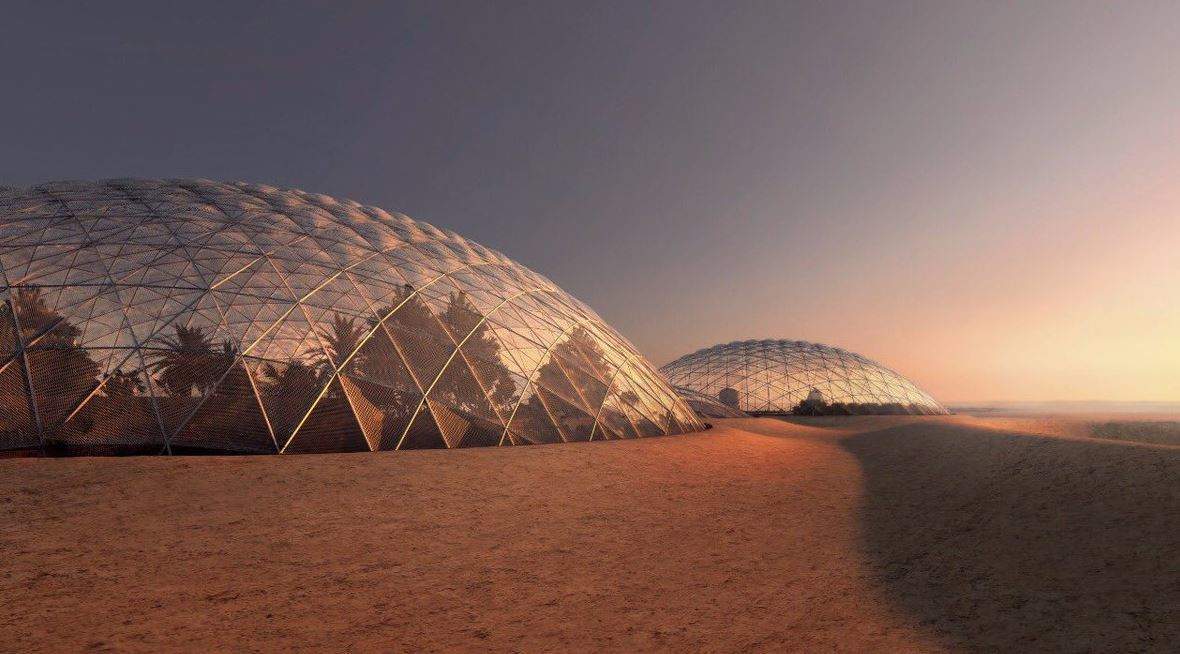
The United Arab Emirates has revealed plans to build Mars Science City, a Mars-like city, as it works towards becoming the first nation to put humanity on the red planet.
UAE announced back in February that they intend to become the first nation to colonise Mars. They intend to build a base on the planet that 600,000 will call home by 2117.

Access deeper industry intelligence
Experience unmatched clarity with a single platform that combines unique data, AI, and human expertise.
The Gulf nation has 100 years to deliver, but it hasn’t taken its time getting started.
During a UAE government meeting earlier this week, plans were revealed for an ambitious first step towards conquering Mars.
UAE announce Mars Science City, but what is it?
UAE has announced that they will build Mars Science City.
The project involves building huge domes in the middle of the desert and confining teams of researchers to it for a year at a time.

US Tariffs are shifting - will you react or anticipate?
Don’t let policy changes catch you off guard. Stay proactive with real-time data and expert analysis.
By GlobalData
Researchers will be tasked with experimenting with food, water and energy supplies, in order to give UAE an early idea of potential struggles and successes before they venture out into space.
Exact details have yet to be revealed, but concept pictures show four huge glass domes, complete with 3D-printed structures and lots of greenery. It looks like the Eden Project in space!

Likewise, the structures come complete with systems that simulate Mars’ terrain and environment.
According to reports, the domes will be located in the city of luxury, Dubai, and will cover a 1.9 million square foot area.
Early projections estimate the cost of Mars Science City at $135m.
Where does Mars Science City fit into UAE’s 100 year plan?
UAE hopes that Mars Science City will provide valuable information as they work towards creating sustainable living conditions on the red planet.
It serves as a starting point, but there is still a long way to go, considering they have yet to a launch mission.
However, they hope to change that by 2020 with the launch of Hope. The mission will see an unmanned spacecraft travel to Mars and orbit the planet for approximately three years to study the atmosphere and climate.
UAE hopes it will be the first of many, with technology advancements eventually allowing humans to move en masse.
Speaking to CNBC, scientific and research committee of the World Government Summit manager Saeed Al Gergawi said:
“We get advancement of rocket tech, which makes people move there easily, then the advancement of oxygen tech to make it more earth like.”
Will UAE win the space race?
The oil-rich nation certainly has the financial capabilities to push on with their plans to venture out into the stars.
However, the United Arab Emirates Space Agency isn’t the only organisation hoping to put humans on Mars. And if proposed dates are anything to go by, they won’t be the first.
Non-profit foundation Mars One plans to establish a human colony on the red planet by 2035. The company has little practical experience, but they hope to complete their first unmanned mission in 2022.
Robots will then piece together a habitable home over the next three years, before astronauts begin to arrive in 2025.
However, Mars One has been plagued by criticism since it was announced. Likewise, one of the astronauts selected to make the trip has accused the project of being a sham.
A more likely challenger for mars colonisation is SpaceX.
CEO Elon Musk previously unveiled the Interplanetary Transport System program, with hopes of developing 40-story high spacecrafts capable of carrying hundreds of humans from planet to planet.

With tests already underway, SpaceX hopes to send its first craft to Mars by 2020. This mission will test whether it is possible to land heavy equipment on the planet with current technologies.
According to Musk, budding space explorers would be able to travel to Mars for approximately $200,000. A cosy habitable home would be waiting at the other end.
SpaceX haven’t set a time frame for the competion of their goal. However, Musk previously stated that he wants to die on Mars. Therefore, we can assume that he has an earlier year than 2117 in mind. Unless he intends to develop a way to slow the aging process too…







